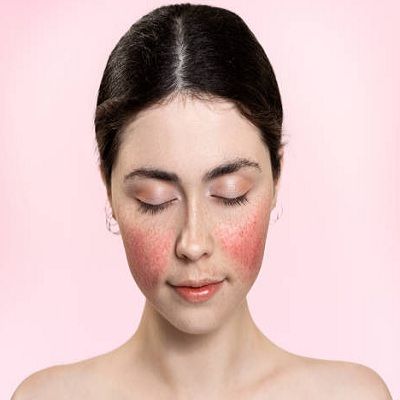Introduction
Rosacea is a common but often misunderstood skin condition. Patients in Dubai frequently have questions about its causes, symptoms, and treatments. This article addresses some of the most frequently asked questions about Rosacea Treatment in Dubai, providing comprehensive and accurate information to help patients manage their condition.
What is Rosacea?
Rosacea is a chronic inflammatory skin condition that primarily affects the face. It is characterized by redness, visible blood vessels, and sometimes acne-like bumps. Rosacea can also cause eye irritation and a burning or stinging sensation on the skin.
What Causes Rosacea?
The exact cause of rosacea is unknown, but several factors are believed to contribute to its development:
- Genetics: A family history of rosacea increases the likelihood of developing the condition.
- Immune System: An overactive immune response may contribute to inflammation and symptoms.
- Environmental Factors: Sun exposure, extreme temperatures, and certain skincare products can trigger flare-ups.
- Microorganisms: The presence of certain bacteria and mites on the skin can exacerbate rosacea.
What are the Common Symptoms of Rosacea?
The symptoms of rosacea can vary widely but commonly include:
- Facial Redness: Persistent redness, especially on the cheeks, nose, and forehead.
- Visible Blood Vessels: Small, visible blood vessels (telangiectasia) on the face.
- Bumps and Pimples: Acne-like breakouts that can be red and swollen.
- Eye Irritation: Red, irritated eyes and swollen eyelids (ocular rosacea).
- Thickened Skin: In severe cases, the skin may thicken, especially on the nose (rhinophyma).
How is Rosacea Diagnosed?
A dermatologist diagnoses rosacea based on a physical examination and the patient’s medical history. There are no specific tests for rosacea, but the doctor may perform tests to rule out other conditions with similar symptoms.
What are the Treatment Options for Rosacea in Dubai?
Dubai offers a variety of treatments for rosacea, including:
- Topical Medications: Prescription creams and gels that reduce inflammation and redness.
- Oral Medications: Antibiotics and other oral medications to reduce inflammation and control symptoms.
- Laser and Light Therapies: Advanced treatments that target blood vessels and reduce redness.
- Lifestyle Modifications: Identifying and avoiding triggers, using gentle skincare products, and protecting the skin from the sun.
Are There Natural Treatments for Rosacea?
Yes, several natural treatments can help manage rosacea symptoms:
- Dietary Changes: Adopting an anti-inflammatory diet and avoiding trigger foods.
- Herbal Remedies: Using aloe vera, chamomile, and green tea to soothe the skin.
- Stress Management: Practicing mindfulness, yoga, and other relaxation techniques.
- Gentle Skincare: Using mild, fragrance-free products and moisturizing regularly.
Can Rosacea be Cured?
There is currently no cure for rosacea, but the condition can be managed effectively with appropriate treatment and lifestyle changes. Early intervention and consistent management can help control symptoms and prevent progression.
What are the Common Triggers for Rosacea Flare-Ups?
Common triggers for rosacea flare-ups include:
- Sun Exposure: UV rays can exacerbate redness and inflammation.
- Extreme Temperatures: Both hot and cold weather can trigger symptoms.
- Spicy Foods: Spicy foods and hot beverages can cause flushing.
- Alcohol: Particularly red wine, which can increase redness.
- Stress: Emotional stress can trigger flare-ups.
- Skincare Products: Products containing alcohol, fragrances, and harsh chemicals.
How Can I Prevent Rosacea Flare-Ups?
Preventing rosacea flare-ups involves identifying and avoiding personal triggers. Other preventive measures include:
- Sun Protection: Wearing broad-spectrum sunscreen daily.
- Gentle Skincare: Using mild, fragrance-free products and avoiding harsh exfoliants.
- Dietary Adjustments: Avoiding trigger foods and maintaining a balanced diet.
- Stress Management: Practicing relaxation techniques and managing stress effectively.
Is Laser Treatment Effective for Rosacea?
Laser treatment can be highly effective for reducing redness and visible blood vessels associated with rosacea. Common laser treatments include pulsed dye laser (PDL) and intense pulsed light (IPL) therapy. These treatments target blood vessels, reducing redness and improving skin appearance.
Can Rosacea Affect the Eyes?
Yes, ocular rosacea can affect the eyes, causing redness, dryness, irritation, and swelling of the eyelids. It is important to seek medical treatment for ocular rosacea to prevent complications.
Conclusion
Understanding rosacea and its treatment options is crucial for effective management. Dubai offers a wide range of therapies, from medical treatments to natural remedies, that can help control rosacea symptoms. By addressing common questions and providing comprehensive information, this article aims to empower patients to take charge of their rosacea and improve their quality of life.





Comments